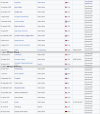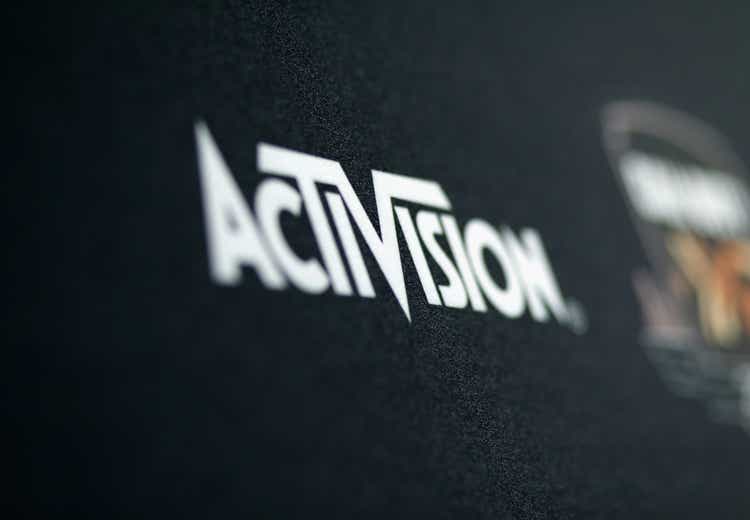It's ironic that you question the need the regulation, then trot out one the reason that the regulation exists. Your post - pretty much all of your posts - focus on Sony and Microsoft. It feels like you are utterly blind to everything the regulators are saying except where Microsoft's narrative ties to Sony. Yet, you raise concerns about the viability of a new entrant getting into the market, which is utterly baffling because that is the biggest issue that the regulators are looking at. Having these massive companies dominating a market makes it really difficult for new players to come in. When developers and publishers are independent, they may chose to adopt publish on any platform but by reducing the number of independent publishers, you make it that much harder for a new player to be viable.
I've stated my POV many times over. But to review:
I agree that a merger of this size should be investigated regardless, and I'm in agreement it does.
But the reasons they put forward for it are the wrong ones imo. I agree that too much industry consolidation is bad for competition, which in turn is bad for the consumers, this much is completely agreeable. But we're in a situation where the reasons put forward is to regulate an industry that does not exist (cloud and multi-game subscription) and stifle the inherent benefits to everyone to ensure that Sony and others still have a space to get in there (in which some are likely to never decide to)
The heart of the debate for me is not that CMA is not doing it's job. It's parroted that COD is the most important IP ever. There in lies the problem I have with the CMA. COD is simply _not_ as important as Sony or CMA thinks it is. The entire argument stems from convincing people COD is the most important IP there is in gaming today and in the future. If you don't agree with this statement, then there is no platform for CMA or Sony to continue.
I agree that Xcloud and Gamepass are particular areas in which we need look after. Traditional games market is impossible to penetrate for any new entrants and building regulations to help support new entrants there is a waste of time. As long as they are not colluding on pricing, I do not care about the established market. The idea that many people feel MS and Nintendo should raise prices because Sony did for reasons is not consumer friendly. The last thing we want is all three of them increasing prices together nonstop because there is no other way around this locked market. And the fact there are more than one individual here that continue to parrot that Sony cannot afford to not raise prices, I would disagree entirely. They are watching Xbox and Nintendo compete, and going further than just not raising their prices, they got the Series X down to 399 and the Series S to 199 this black friday. Wait until you've experienced the Canadian telco, where we continue to have the highest mobile plan rates in the world by _far_ per capita. It's collusion, and regulatory here has been trying forever to find ways to get prices down, but they cannot, and the level of benefit they've given to new entrants is staggering, and they still largely fail.
Yes, it's ironic that I made such an argument! I agree that they should be stopping this merger to keep the streaming market open but I have some exceptions to these particular points: I have again concerns with the level of control that CMA has to look after these areas that I will highlight below.
A) Firstly, Multigame subscriptions is not a market. It's a different way of paying for the exact same entertainment that is already available and you don't ultimately own it. Games are not like books or video media, games have long tails of replay-ability. Many may still opt to own their titles as it becomes cheaper to own than to pay subscription services to do the same thing. There is an entire Free 2 Play paradigm out there that generates more revenue than both sub services and traditional services. In the face of free, declaring sub services a new market makes no sense.
B) Xcloud can be a market, yes, this makes sense, game cloud streaming is the only way to unseat the existing incumbents in the traditional gaming model. We see this disruption happening all the time now, native cloud applications are unseating seated leaders. Which is why this area should be protected. Traditional games are locked, a new competitor cannot bring new hardware, a new digital store front, bring their wares to channels and be successful at it at a return that makes any sense at all. Games are too risky to gamble in that way. Streaming however, provide an avenue of providing the same service forgoing the need for deploying hardware.
And yet we saw Stadia foreclose. Why? Because of 2 main reasons. 1. its library was insufficient to drag customers to its platform. 2, it's pricing model meant that you had to buy game licenses and pay for the service. to play them. This makes it impossible because no one is going to buy a game for a service that is not guaranteed to stick around. Xcloud is currently not out of beta for precisely this reason, they will not allow users with digital licenses to play them on xcloud; they cannot open pandora's box. Xcloud game streaming is inexplicitly tied to gamepass because they _do not_ want xcloud users to own their content. This way if they have to close xcloud, there is no loss, no refunds, no game licenses issues to deal with; They can only play what is on gamepass and this is expected characteristics of streaming services on the internet today.
Which brings me back to why Stadia failed. MS resolved the issue here with game ownership and service costs, by removing the ownership of games. But it has not solved the issue of a significant enough game library for non-hardware owners to jump onto the platform. As it stands today, xcloud is still dead. Point 3, is the technology, but that is a separate issue. If you're following me up to now, then we have 1 thing that the CMA has no control over, and that is, MS has no way to force (critical content) games onto gamepass except to pay dearly for them, and therefore moving those particular titles onto xcloud.
This weakness is easily exploited by blocking games onto gamepass therefore they cannot make it to xcloud. And SONY has been actively paying marketing deals to block (critical: ie. COD) games on game pass, therefore not allowing the entire cloud market to even exist.
Why is this a problem? Because the CMA has not been involved in the stopping of these types of blocking clauses, I'm unsure if they can be involved in this particular area, I don't quite understand how far their jurisdiction reaches beyond what we see here. And
these blocking strategies are fundamentally additional challenges _making it even more difficult_ for new entrants to break into 'streaming game service' market. Supporting a new market, vs. trying to support helping to break into an old market with heavily established players, the prior is significantly more effective. This merger business can be easily stopped, if CMA would just disallow certain exclusivity practices, we wouldn't need mergers then, and competition would be freer. I am in agreement with John L. that the best way forward is not acquisitions of companies but payment of 3rd party companies to create exclusives on behalf of the platform holders. But we don't see this model occur often because it's likely incredibly hard to, especially when you are looking at _long term_ support for titles that extend beyond its 8 hour play time.
And the worst part of all of this is? COD. As much as you say it's not about COD, it's about COD, because if this merger occurs with MS giving concessions only on COD, then it was about COD. And now you know why MS will give COD to Sony for 10 years. It needs to own it so that it can be on game pass one day, which means it can be on xcloud one day. And in my opinion, this is why no length of period will satisfy Sony, because they don't want to enter the streaming business - so they are actively trying to kill it before it begins. Which is why Sony will request not more than just 10 years, they seek to have parity to guarantee that COD is on their streaming platform which they know MS will not want to do. Thus, if MS does not concede on this point and CMA cancels the merger, cloud streaming will have a much harder time if ever to take off as Sony will continue to block marquee titles onto Gamepass and therefore xcloud.










